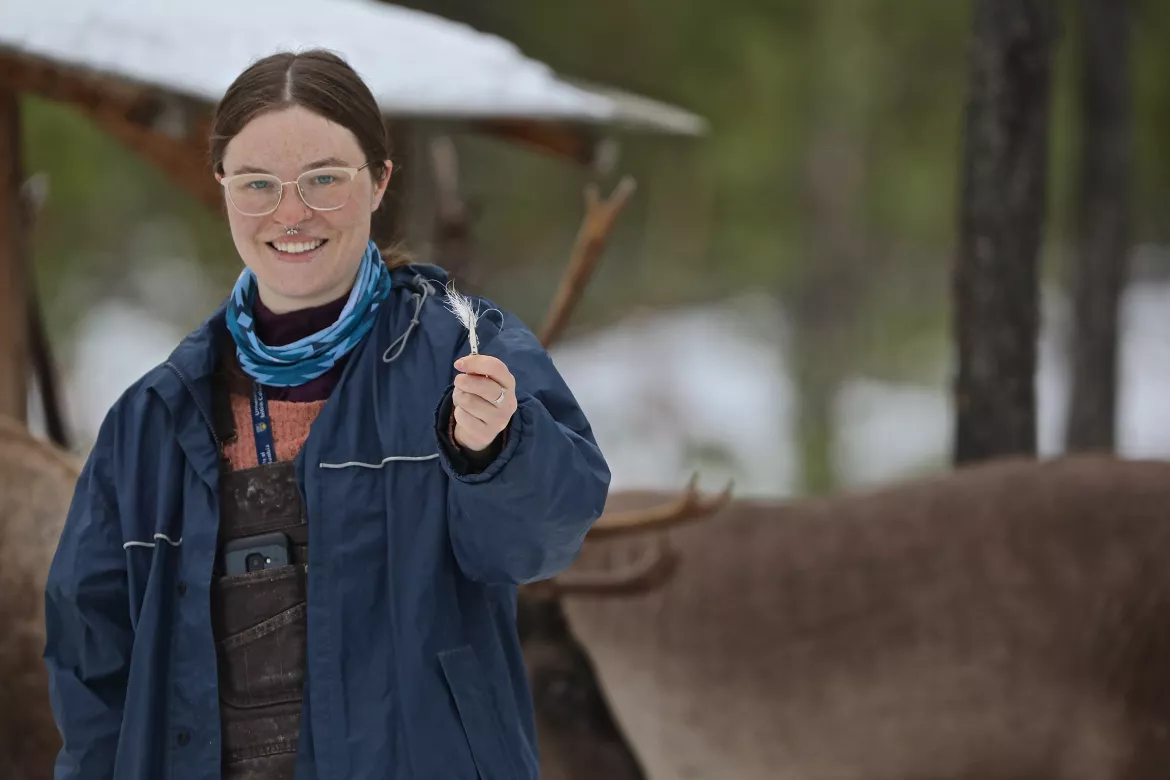NRESi x FWCP Special Colloquium - The Effects of Supplemental Feeding on Physiology and Reproduction in an Endangered Caribou Herd - Lauren Elviss

Most woodland caribou (Rangifer tarandus caribou) populations in British Columbia are declining throughout their range. In north-eastern BC, the Kennedy Siding herd declined from 120 individuals in 2007 to 41 individuals in 2012. In response to these declines, a supplemental feeding program was initiated in 2014 where high-quality food pellets are provided to free-ranging caribou within the herd each fall, with the goal of improving body condition to increase winter survival and improve reproductive outcomes. Feeding appears to have positive effect on caribou, with the herd growing by approximately 16% per year. However, the mechanisms by which improved nutrition is contributing to population growth is currently unclear. We used fecal and hair cortisol as a proxy for physiological stress, and fecal triiodothyronine (T3) and hair δ15N as indicators of nutritional stress to evaluate changes in caribou health and body condition over the feeding period. We compared female caribou with a weaned calf in the fall to those without to assess the effects of lactation and calf rearing on body condition. Our results suggest that caribou with a weaned calf are in poorer physiological and nutritional condition than those that either did not have a calf or lost their calf before the fall. Fecal cortisol declined over time, suggesting reduced physiological stress with increased access to food. All females sampled had progesterone values indicative of ovulation, which suggests high pregnancy rates within the herd. Combined, these results suggest supplemental feeding contributes to population growth by allowing caribou to gain the body reserves needed to reproduce Our work contributes to understanding the role health and nutrition plays in caribou conservation and provides guidance on the use of supplemental feeding in support of caribou recovery.
Originally from the south coast of BC, Lauren developed an interest in ecology as a kid while exploring the beaches and forests around Vancouver and the Gulf islands. She received her Bachelor of Science in Wildlife and Fisheries Management in 2021 from the University of Northern British Columbia. She is currently a master’s student in the Wildlife and Ecosystem Bioindicators Lab at UNBC. Her research focuses on using hormones and stable isotopes to examine the effects of supplemental feeding on health and reproduction in the Kennedy Siding caribou herd. Lauren is an avid hiker and wildlife photographer and can often be found in the woods with her camera.
The Natural Resources & Environmental Studies Institute (NRESi) at UNBC hosts a weekly lecture series at the Prince George campus. Anyone from the university or wider community with interest in the topic area is welcome to attend. Presentations are also made available to remote participants through Zoom Webinar. Go to http://www.unbc.ca/nres-institute/colloquium-webcasts to view the presentation remotely.
Past NRESi colloquium presentations and special lectures can be viewed on our video archive, available here.